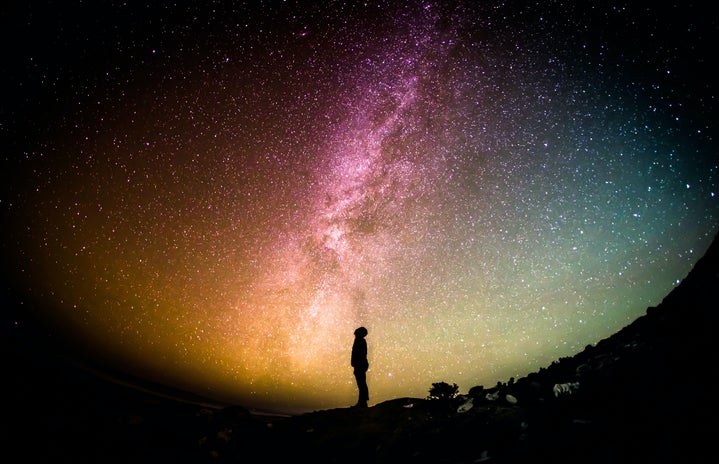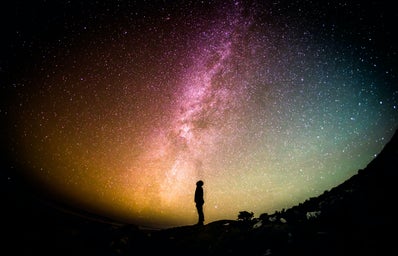If you’ve ever crossed paths with a Barnes and Noble pride month display or spent any time on BookTok, you’ve probably heard of “Aristotle and Dante Discover the Secrets of the Universe.” This beloved coming-of-age YA novel about two boys growing up in El Paso in 1980 is a fan favorite across readers of all ages.
When I heard that Blue Fox Entertainment was quietly releasing a movie adaptation of “Aristotle and Dante,” I was ecstatic, but also a little wary. It’s well known that movie adaptations of books don’t always land well (Percy Jackson, I’m looking at you). So when I dragged my roommate to the movies with me last Sunday, I was trying not to get my hopes up too high.
The good news is that I came out of the theater wholly satisfied with the adaptation. The only bad news is that the movie is, indeed, just as heartbreaking and tender as the novel is. I wouldn’t describe the source material as a “sad book,” but there are moments of character development that are sure to be tear-jerkers. The movie deals with these moments carefully and gracefully, lending them more of a spotlight than the happier, more frivolous parts of the story. This would be my only complaint about this movie, and it’s most likely a result of time constraints (a very palatable runtime, coming in at a little over an hour and a half). Certain moments of struggle and adversity are integral to the story, so they tend to dominate the big screen.
This doesn’t mean that Ari and Dante don’t get their moments, though. Part of the appeal of their story is how it flourishes from a place of love. Even from their first scene together, it’s clear that the boys share a deep understanding and affection for each other. Just like in the book, watching their mutual feelings for each other blossom into a beautiful relationship gave me exactly what I wanted: a story that everyone who’s ever been a teenager in love will find comfort and joy in.
Another aspect of the movie that I really enjoyed was the parental figures. One reason I love LGBTQIA+ stories like this is because supporting characters rally around the leads in a comforting, reassuring way. This was always one of the most notable aspects of the book for me. If all parents reacted to their child coming out the way Ari and Dante’s parents each did, the world would be a much more empathetic place. I specifically loved the way the movie lived up to the book versions of Ari’s parents,showcasing both his mother’s fierce nature and his father’s seemingly-hardened heart. I saw Ari’s personal growth guiding him to love and understand both of his parents, and I reveled in how deeply they adore and care about each other and him.
As far as the more technical aspects of the movie went, I was very satisfied thereas well. The casting was phenomenal, and while it’s hard to narrow down a favorite casting choice (because they’re all so on-point), Reese Gonzales perfectly embodied Dante’s magical and kind nature. He is delicate without being helpless, loving without being weird, and innocent without being naive. It meant the world to me to see such a unique character brought to life with such care.
Setting, costuming, and soundtrack are also extremely well-executed and make the aesthetic pop. El Paso remains the perfect place for this story, and the movie uses the city and desert locations to paint beautiful pictures of who each character is and what matters to them. The costumes represent the characters’ personalities to a T and effortlessly align with the funky time period (Ari in a cropped football jersey? Peak cinema.). And, sonically replicating the mood of the book, the soundtrack comprises songs that are important to each character, especially Ari.
LGBTQIA+ stories that place love and happiness at the forefront are becoming easier to find in movies, TV, and books in recent years – this change is welcomed with open arms following prolonged slews of gay romances portrayed only as tragedies. While stories depicting the very real struggles and injustices towards the LGBTQIA+ community are endlessly important, “Aristotle and Dante Discover the Secrets of the Universe ” is a blueprint for a warmer, more satisfying genre of gay romance stories. The movie carries this legacy well, and provides the tender relatability that has made the book such a beloved classic.


